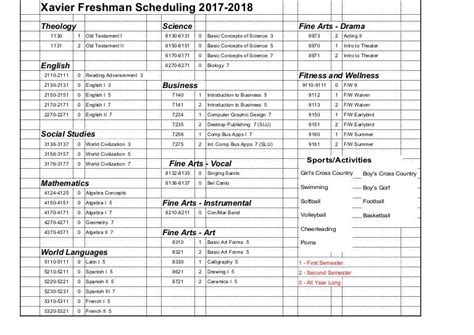Stepping into the hallowed halls of higher education as a freshman is a thrilling yet daunting experience. Navigating the myriad of course offerings can be overwhelming, especially if you’re unsure of your academic trajectory. To help you make informed decisions, we’ve compiled a comprehensive list of classes that every freshman should consider taking.

Core Curriculum Classes
English Composition
- Enhances critical thinking, writing, and communication skills
- Required for most undergraduate degrees
- Typically offered as English 101 or Writing 1
Mathematics
- Math proficiency is crucial for various fields, including science, business, and engineering
- Corequisite courses can include Calculus 1, Statistics, or Finite Mathematics
Natural Sciences
- Provides a foundation in biology, chemistry, physics, or earth science
- Lab components reinforce theoretical concepts
- Popular courses include General Biology, Chemistry 1, and Introductory Physics
Social Sciences
- Explores human behavior, societies, and historical events
- Courses delve into sociology, psychology, anthropology, and economics
Humanities
- Broadens perspectives on art, literature, history, and philosophy
- Nurtures critical thinking, creativity, and cultural awareness
Exploration Classes
Introduction to X
- Introductory courses in specialized subjects provide a taste of various fields
- Examples include Introduction to Computer Science, Introduction to Data Science, or Introduction to Psychology
First-Year Seminars
- Small, discussion-based classes that foster critical engagement and intellectual curiosity
- Topics often revolve around current events, social issues, or interdisciplinary perspectives
Foreign Language
- Enhances cognitive abilities, cultural awareness, and global career prospects
- Popular languages include Spanish, French, Mandarin, and Arabic
Electives Based on Passion
Channeling your interests into elective courses can make your college experience more fulfilling and rewarding. Here are some ideas:
Arts
- Music, art history, drama, dance
Business
- Marketing, finance, management, entrepreneurship
Science
- Environmental science, astronomy, geology, neuroscience
Social Sciences
- Gender studies, international relations, sustainable development
Tips for Choosing Classes
- Consult your academic advisor: They can provide guidance based on your major and interests.
- Read the course descriptions carefully: Understand the content, prerequisites, and workload.
- Consider your workload: Don’t overload yourself with too many challenging courses.
- Prioritize core curriculum classes: These are typically required for graduation.
- Explore potential career paths: Take classes that align with your future aspirations.
- Don’t be afraid to drop classes: If a course proves to be too difficult or uninteresting, consider dropping it and enrolling in something more suitable.
Table 1: Essential Core Curriculum Classes
| Category | Course Title | Minimum Credit Hours |
|---|---|---|
| English Composition | English 101 | 3 |
| Mathematics | Calculus 1 | 4 |
| Natural Science | General Biology | 4 |
| Social Science | Introduction to Sociology | 3 |
| Humanities | Western Civilization | 3 |
Table 2: Popular Exploration Classes
| Course | Category | Credit Hours |
|---|---|---|
| Introduction to Computer Science | Computer Science | 3 |
| First-Year Seminar on Climate Change | Interdisciplinary | 3 |
| Beginning Spanish | Foreign Language | 4 |
Table 3: Elective Courses by Interest
| Interest Area | Course Example | Credit Hours |
|---|---|---|
| Arts | Music Appreciation | 3 |
| Business | Introduction to Marketing | 3 |
| Science | Introduction to Astronomy | 3 |
| Social Sciences | Global Health | 3 |
Table 4: Tips for Choosing Classes
| Step | Action |
|---|---|
| 1 | Consult your academic advisor |
| 2 | Read course descriptions thoroughly |
| 3 | Consider your workload |
| 4 | Prioritize core curriculum classes |
| 5 | Explore potential career paths |
| 6 | Don’t be afraid to drop classes if necessary |
